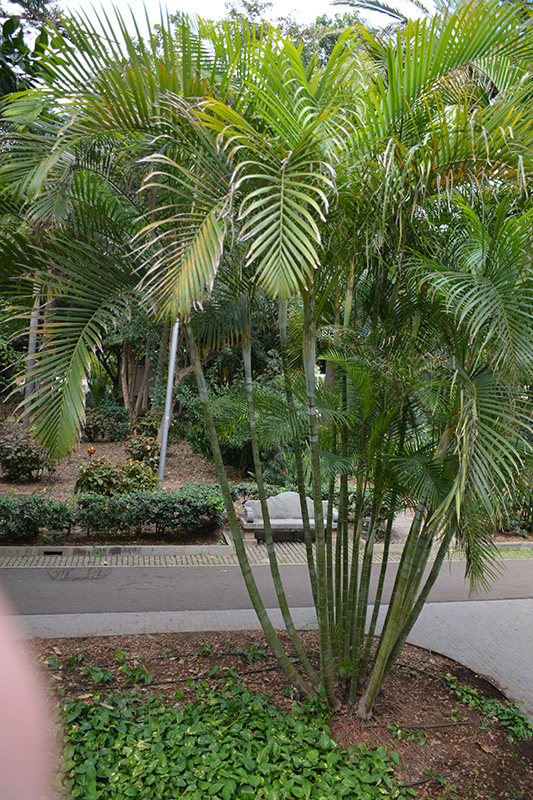Height: 15 feet
Spread: 15 feet
Sunlight:
![]()
![]()
Hardiness Zone: 10a
Other Names: Butterfly Palm, Golden Cane Palm, Bamboo Palm
Description:
A small palm that is very easy to grow; cane-like multiple stems that resemble bamboo are topped with pinnate, upward arching fronds with yellow midribs; an elegant addition to the landscape; small yellow-orange fruits mature to black in fall
Ornamental Features
Areca Palm has attractive forest green foliage with pointy gold spines on a plant with an upright spreading habit of growth. The large glossy narrow pinnately compound leaves are highly ornamental and remain forest green throughout the winter. It produces yellow berries with orange overtones in early fall, which fade to black over time.
Landscape Attributes
Areca Palm is a multi-stemmed evergreen tropical plant with an upright spreading habit of growth. Its relatively fine texture sets it apart from other landscape plants with less refined foliage.
This is a relatively low maintenance tropical plant, and should not require much pruning, except when necessary, such as to remove dieback. It has no significant negative characteristics.
Areca Palm is recommended for the following landscape applications;
- Accent
- Naturalizing And Woodland Gardens
- Container Planting
Planting & Growing
Areca Palm will grow to be about 15 feet tall at maturity, with a spread of 15 feet. It has a low canopy with a typical clearance of 3 feet from the ground, and is suitable for planting under power lines. It grows at a slow rate, and under ideal conditions can be expected to live for approximately 10 years.
This tropical plant does best in full sun to partial shade. It does best in average to evenly moist conditions, but will not tolerate standing water. It may require supplemental watering during periods of drought or extended heat. It is not particular as to soil pH, but grows best in rich soils. It is somewhat tolerant of urban pollution. This species is not originally from North America..
Areca Palm makes a fine choice for the outdoor landscape, but it is also well-suited for use in outdoor pots and containers. Its large size and upright habit of growth lend it for use as a solitary accent, or in a composition surrounded by smaller plants around the base and those that spill over the edges. It is even sizeable enough that it can be grown alone in a suitable container. Note that when grown in a container, it may not perform exactly as indicated on the tag - this is to be expected. Also note that when growing plants in outdoor containers and baskets, they may require more frequent waterings than they would in the yard or garden.

